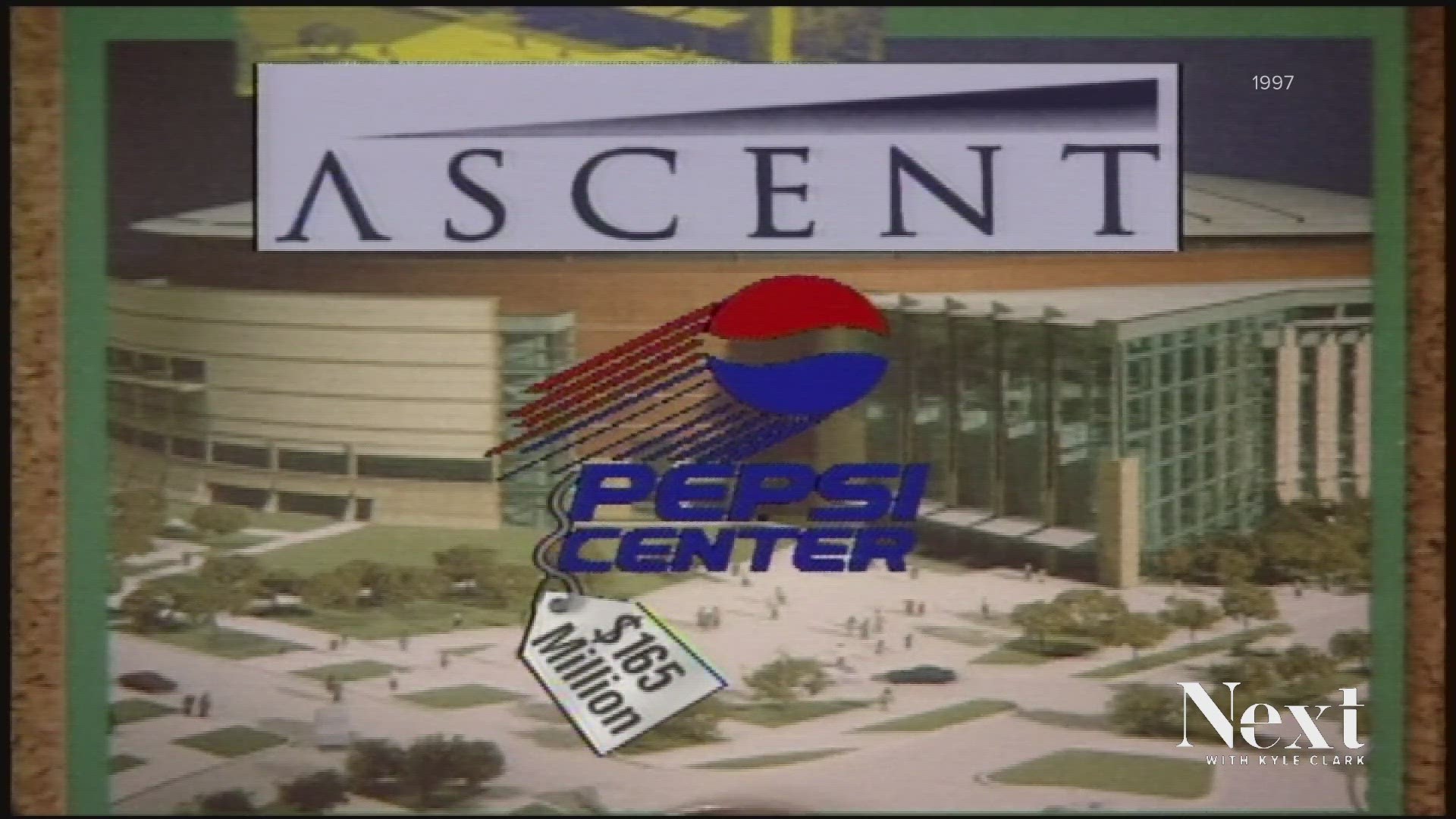DENVER — After Next with Kyle Clark's story on potential updates to Ball Arena, Laura H. asked: "Aren't the owners of these facilities somewhat accountable to the public vis-a-vis the tax breaks they enjoy? Maybe they don't enjoy any? I dunno. Just asking."
Ball Arena, formerly Pepsi Center, is the only major sports stadium in Denver built entirely with private funding, unlike Coors Field and Empower Field at Mile High which were both built after public tax referendums. But that doesn't mean the hockey and basketball arena didn't get financial help from the government at the time it was built.
9NEWS archives show the deal, which required city council approval, took months to work out. The city and Ascent Entertainment Group, which owned the Colorado Avalanche and the Denver Nuggets at the time, agreed to terms in August 1997. At the time, Mayor Wellington Webb said the contract was a good deal.
"This is a deal that the city can hold it's head up and say when we compare it with other deals around the country Denver did very well," he said at a news conference next to Ascent's CEO Charlie Lyons.
As part of the agreement, Denver agreed to essentially exempt the arena owners from property taxes, deferring the property tax money through Tax Increment Financing (TIF) to the developer to pay for expensive environmental remediation of the site of the arena, which up until the development was considered an Environmental Protection Agency Superfund Site contaminated by railroads and industrial uses leading up to the redevelopment. According to the Denver Urban Renewal Authority, the city committed to divert $36.5 million in TIF funds through 2022 or whenever the developer was repaid. The payoff was complete in 2016.
Denver also paid about $4.5 million to build roads and other infrastructure on the site and agreed to lose out on a seat tax earned in the previous McNichols Arena, which usually amounted to about $4 million.
Kroenke Sports and Entertainment once again pays property taxes on the stadium, paying $2.8 million so far this year, according to a listing on the Denver assessor's website. The property is listed on that site as being 706,632 square feet with four bedrooms and four and a half bathrooms. (This reporter's assumption is that the bedroom and bathroom count is for the penthouse attached to the arena.)
The questions about Ball Arena's public funding come after KSE surveyed fans this week about renovations the company is considering for the arena. The upgrades include new seating tiers with more amenities aimed at making the arena feel more "exclusive." Victor Matheson, a sports economist and professor at Holy Cross College, said the exclusivity reflects a trend in sports in the last 30 years as owners look to create higher dollar options as they're easier to sell than cheaper seats.
“You make a lot more money, selling a couple folding chairs literally at courtside than you do selling dozens and dozens of seats up in the nosebleed section,” Matheson said.
He said it's not unusual to see a stadium like Ball Arena not seek public funding as indoor event spaces like it are easier to operate for a multitude of other events.
"The reason for that is pretty clear is that these are facilities that can be used year round, and can be used a lot by folks besides the primary tenants," he said. "Mile High Stadium is something that's only going to be used occasionally outside of the Broncos. Almost no events are at Coors Field other than Rockies games."
Have a tip about this or any story? Email 9NEWS Reporter Steve Staeger at steve@9news.com. And if you have a question about something in Colorado, you'd like an answer to, email your Next Questions to Next@9NEWS.com.
SUGGESTED VIDEOS: Full Episodes of Next with Kyle Clark

